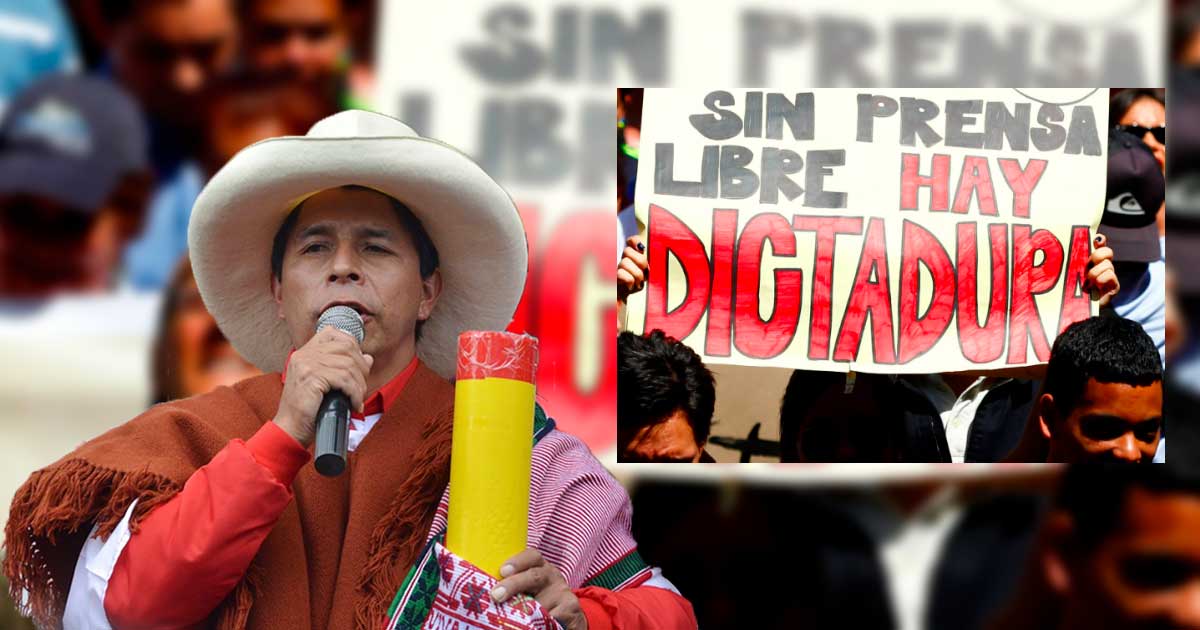RIO DE JANEIRO, BRAZIL – The Inter American Press Association (IAPA) on Tuesday (30) expressed its concern over the “derogatory statements against the media” made by the president of Peru, Pedro Castillo, whom it called upon to “abandon his attitude of silence” against journalists, to whom he has not given interviews since he took office.
The organization, based in Miami (USA), recalled that last week during a visit to the city of Arequipa, the second most important city in the country, Castillo “threatened” not to grant official advertising to the media that “distort reality”.
Read also: Check out our coverage on Peru
The president, who is facing an impeachment motion filed by the opposition in the Peruvian Congress, added that the media sell their pro-government editorial line in exchange for being assigned “budget”.

These statements prompted the Peruvian Press Council and the National Radio and Television Society to deny that the media “have conditioned their position or editorial line to the investment in advertising made by the State”. They pointed out that State advertising represents 5% of their total income.
IAPA President Jorge Canahuati and the chairman of the IAPA’s Committee on Freedom of the Press and Information, Carlos Jornet, stressed that government advertising should not be a “government tool to reward or punish critical media or journalists,” and on the contrary, should be “administered with transparency and technical and efficiency criteria”.
“The Peruvian Congress must legislate and regulate how several governments have been using public funds for their benefit and discriminating with official advertising against those media that they consider critical,” they jointly declared in a communiqué.
The IAPA described as a “corrupt practice” the discriminatory handling of official advertising by governments, “both through the misuse of public resources and in an attempt to influence the editorial decisions of the media.
Likewise, and as it had already pointed out in a resolution on official advertising, it condemned the media and journalists who “benefit from these irregular and illegitimate practices or even become accomplices through their conduct.
The IAPA alluded to the Declaration of Principles on Freedom of Expression of the Inter-American Commission on Human Rights, which states that “the arbitrary and discriminatory allocation of official advertising… based on its informative lines, violates freedom of expression.”
Canahuati, executive president of Grupo Opsa (Honduras), and Jornet, director of the newspaper La Voz del Interior (Argentina), both expressed their concern at the “secrecy of President Castillo towards journalists and the media” since he began his term in office last July.
“The president has been reinforcing the tendency that we denounced in our most recent report on press freedom in Peru, that Castillo and his government officials limit the access of journalists, media, and citizens to information of public interest and do not grant interviews,” they said.

